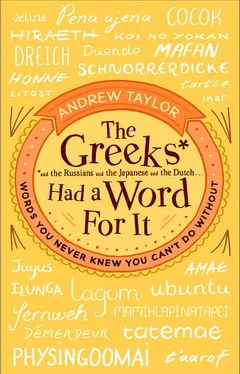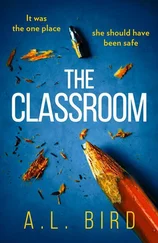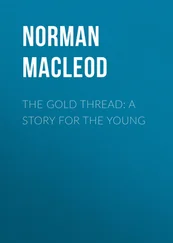Many of the Aboriginal languages have no single word for ‘tree’, but only words for each particular kind of tree; several have words for the smell of rain ( nyimpe in Arrernte, spoken around Alice Springs, or panti wiru in Pitjantjatjara, spoken in Central Australia). They contain a vast repository of practical knowledge about the pharmaceutical and nutritional properties of Australian plants and animals.
But a single word that draws together much of this affinity with the natural world is dadirri , from the Ngangikurungkurr language spoken in Australia’s Northern Territory. It’s generally translated into English as ‘contemplation’, but it has a much richer and more spiritual meaning than that. Another translation is ‘deep listening’, which catches more of the sense of quiet, stillness and attention that the word suggests.
However, it goes far beyond simply listening to the natural world. Dadirri might describe the rapt attention paid to the ancient sacred stories about the tribe that have been told or sung for hundreds or thousands of years around a succession of campfires. It might be inspired by the ritual music and dancing of a corroboree , at tribal smoking ceremonies, or by the haunting music of the didgeridoo. In that sense – an awareness of the history and culture of the tribe – it can be felt both as the listener and the performer.
Dadirri implies a sense of wonder and humility, an almost mystical awareness of one’s individual place in the great mystery of Creation. It focuses attention on both the vastness of the external worlds of time and space, and on the inner thoughts and emotions of the individual as a part of that greater whole.
It is not hard to see why this mystic combination of humility and self-awareness was taken up by Christian churches in the centuries since European explorers arrived in Australia, nor how the identification of the individual with the natural world is relevant to more recent concerns about sustainability and environmental awareness.
There is a growing belief in many English-speaking societies in the benefits of mindfulness, an awareness of the present moment, of your own thoughts and feelings, and of the world around you. Doctors, counsellors, coaches and the NHS recommend it as a way of combatting stress and improving mental well-being.
How much better to be aware of oneself not just in the present moment but in the context of hundreds or thousands of years of history. Several Aboriginal writers and thinkers have suggested that dadirri could be the gift of their peoples to modern Australia – an idea and a word whose time has come. [12] Miriam-Rose Ungunmerr-Baumann, Dadirri: A Reflection (http://nextwave.org.au/wp-content/uploads/Dadirri-Inner-Deep-Listening-M-R-Ungunmerr-Bauman-Refl.pdf).
Feeling lost, like a fish out of water
Sir John Seeley was a Victorian historian who famously observed that the British, in establishing their empire, seemed ‘to have conquered half the world in a fit of absence of mind’. If that’s true, then the English-speaking world is composed largely of the descendants of stout-hearted adventurers who sailed round the globe seizing territory without even noticing it. Not, then, people who are happiest in their own back garden and feel uneasy anywhere that you need a passport to get to.
And yet, if you search for a word in English to describe the feeling of not knowing quite where you are, not feeling at home, not recognizing your surroundings, you would probably come up with ‘disoriented’. ‘Bewildered’ or ‘confused’ might do instead, or maybe ‘befuddled’. All of which suggest an uncomfortable, nervous feeling.
You might think the language that contains these words is one spoken by people who would rather be safe at home, thank you very much, sitting by the fire in that comfy old cardigan with the holes in the elbows, watching Strictly Come Dancing while clutching a nice warm cup of hot chocolate – certainly not by the bold and buccaneering descendants of Francis Drake, Captain Cook, or the heroes of the East India Company.
The French have a similar expression, dépaysé ( deh-pay-SAY ), which also means lost, or like a fish out of water. Pays means country, so the word literally means ‘taken out of your country’. But here is the unexpected and, for an English speaker, slightly shaming part: dépaysé also has the meaning of feeling disoriented but loving every minute of it. If you are dépaysé by a holiday, for instance, it has brought you a change of scenery, reinvigorated you and given you a new lease of life. While the poor old English speaker is still blinking around anxiously for something familiar, like a child looking for his teddy bear, the Frenchman is breathing in the air of freedom, gazing out impatiently at fresh new pastures and relishing the mystery of what might lie over the horizon.
The excitement of renewal, the relishing of fresh experiences, the idea of a new beginning?
And it goes further than that. The verb se dépayser ( suh DEH-pay-say ) literally means ‘to exile yourself, to remove yourself from your own country’, but it also has the sense of stepping outside yourself, looking at your surroundings with fresh eyes. It’s a positive view of unfamiliarity, an acceptance of the fact that living exclusively with what you’re used to can have the effect of dulling your senses and quenching your ambitions. There’s a similar verb in French, se débrouiller ( suh day-BROO-i-yay ), which has a literal meaning of de-fogging yourself, shaking off the mental baggage that you carry with you and making a new start.
Should we embrace a word to describe a feeling that is shared with the whole of humanity – the excitement of renewal, the relishing of fresh experiences, the idea of a new beginning? Or are we the sort of people who take Marmite and marmalade on holiday with us and want English pubs and fish and chips on the Costa Brava – people who have no time for these fancy foreign ideas?
The magical atmosphere created by sunlight filtering through leaves
It’s a spectacle that’s hard to forget.
The Canal du Midi, cutting through 150 miles of southern France and linking the Mediterranean and the Atlantic Ocean, is an engineering wonder of the seventeenth century. Its creator, Pierre-Paul Riquet, kept around twelve thousand workers on the job with picks and shovels for fifteen years. But it’s not the history, or the technological marvels, or even the human triumphs that remain with the traveller – just the staggering, overwhelming beauty of the place.
Sailing through it, the water ahead of the boat is glassy-still, so the reflection of the weathered old stone bridge forms a complete circle, in which it is hard to see where the stone ends and the water begins. The boat noses softly through this magic circle to the other side as if it were a scene from Alice Through the Looking Glass . And the silent lines of plane trees, planted for the practical purpose of holding the soil of the banks together, filter the harsh southern sun into a stippled, shivering carpet of light and shadow.
It is one of the most beautiful sights many visitors have ever seen. And there is a Japanese word that describes it exactly.
Komorebi ( KOH-MOH-REHB-i ) is made up of a group of characters which individually signify trees, escape and sunlight, and it’s usually translated – or rather described – as sunlight filtering through the leaves. For a simple translation we might try dappled shade, but once you’ve seen this particular light, you’ll realize how inadequate that is.
Читать дальше












